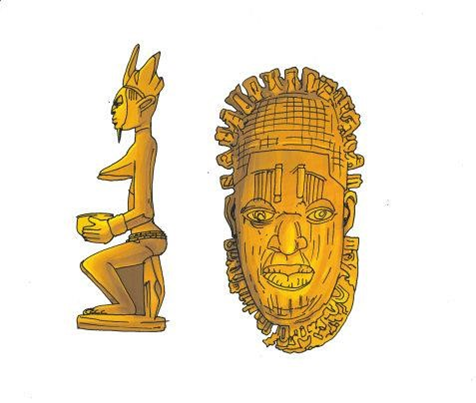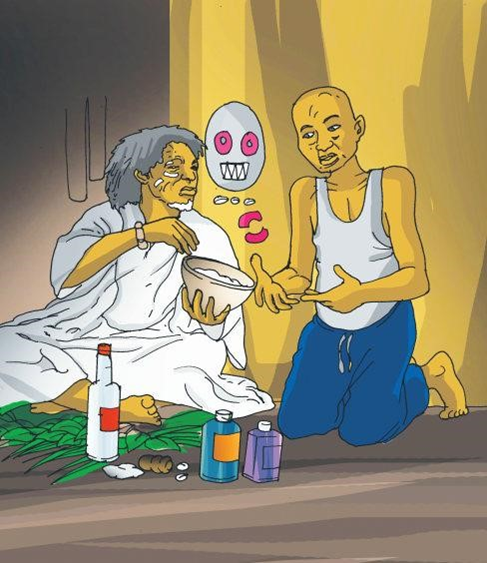Lesson Notes By Weeks and Term - Primary 6
MEANING OF CULTURE
WEEK 5
SUBJECT: SOCIAL STUDIES
TERM: 1ST TERM
CLASS: PRIMARY 6
BEHAVIORAL OBJECTIVES
By the end of the lesson, pupils should be able to:
INSTRUCTIONAL MATERIALS: A chart showing ancient and modern building.
REFERENCE MATERIALS
Scheme of work
All relevant materials
6-Years Basic Education Curriculum
Online information
BUILDING BACKGROUND/CONNECTION TO PRIOR KNOWLEDGE:
Pupils are familiar with the topic in their previous classes.
CONTENT
MEANING OF CULTURE
Culture is the way of life of a group of people. This group of people may be a clan, an ethnic group or a country. The way of life of a people involves many things. Some of these things are the types of food they eat and how they prepare them, the way they marry and organize their family, and the way they produce what they need and how they use them.
Culture also includes the way people build their houses, the language they speak, their beliefs, their arts, their manner of dressing, the way they fight wars, the weapons they use, the way they organise themselves, and the way they behave generally. That is why culture is said to be the way of life of a group of people. This means that all the things we do and how we do them, and all the things we say and how we say them, are part of our culture. Culture does not involve only dresses and dances. It is everything we do in our lives.
Artworks

Foreign cultural elements which affect traditional culture and values Foreign culture can be defined as the cultural practices or the way of life of foreign people such as Europeans, Americans, Asians and Arabs. For instance, many Nigerians have visited a lot of countries outside Africa. Many people from other countries have also visited us here in Nigeria. Nigeria was once ruled by a foreign country. When our people noticed these elements, they accepted and began to practise some of them.
The aspects of foreign culture that have affected our culture most are mainly from Europe, America and Arab countries. European and American cultures have affected people in all parts of Nigeria, but their effect is stronger in the southern part of the country. Arab culture, however, has affected people in the northern part of Nigeria more.


Some of the foreign cultural elements which affect our traditional values and culture are religious practices, education, mode of dressing, government and music. Our traditional religious practices have changed as a result of foreign influence. Today, many Nigerians are either Christians or Muslims. Our present system of government is also as a result of European and American influences. Our leaders are elected into offices, and traditional rulers no longer take active part in government.

The Europeans also brought a different type of education to us through the Christian religion. Before they came, our education took place mainly at home, in the neighborhood, on the farm, in the marketplace, and wherever we found ourselves. Now we have primary schools, secondary schools, colleges of education, polytechnics and universities where people receive education. Our dresses, the types of food we eat, and our music have also changed from what they used to be because of the influence from Europe and America. There are also external influences on how we care for the sick. In Nigeria, we used to rely solely on traditional doctors to treat the sick. Due to external influences, we now have many hospitals where the sick are treated by doctors who have been trained in the universities and medical schools. Some doctors and nurses even go abroad to study. This influence is from Europe and America.

Advantages and disadvantages of foreign culture Non indigenous Nigerian culture
There are many good things in our culture. We must promote these aspects of our culture so as to influence people in other countries.
The following are some of the ways in which we can promote our culture:
1 We must take part in our traditional activities, such as annual festivals. 2 We should promote our African traditional medical practices by patronizing herbal doctors, and we should never laugh at or condemn those who patronize them.
(WRAP-UP CONCLUSION)
Teacher goes over the topic once again to enhance better understanding
A Choose the best answers for the following questions:
1 The way of life of a group of people is known as their _______________.
A norm B value C culture D religion
Foreign culture D Indigenous culture
Manner of fighting wars D none of the above
Aspects of foreign culture that have affected Nigerians are from all of these except _______________. A Europe B America C Australia D Arab countries
© Lesson Notes All Rights Reserved 2023